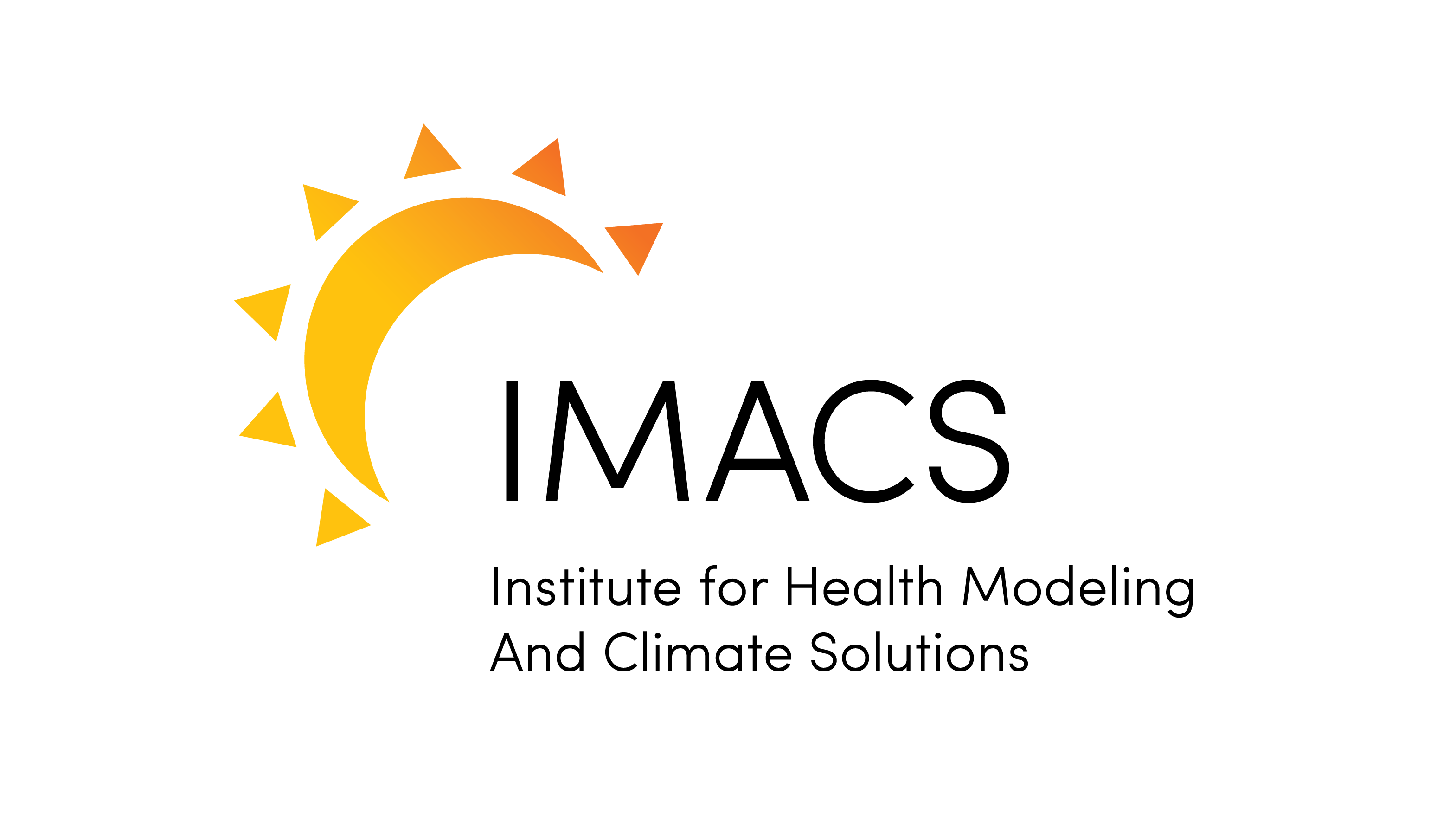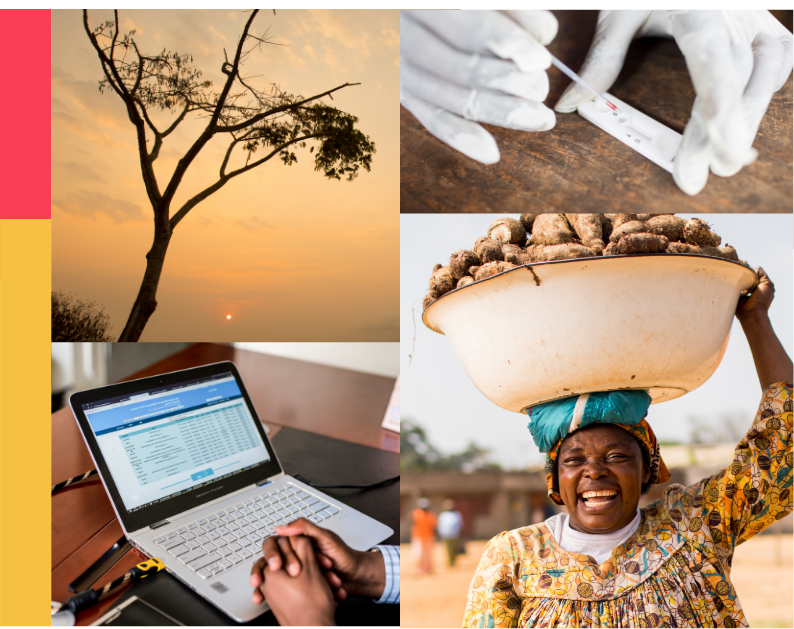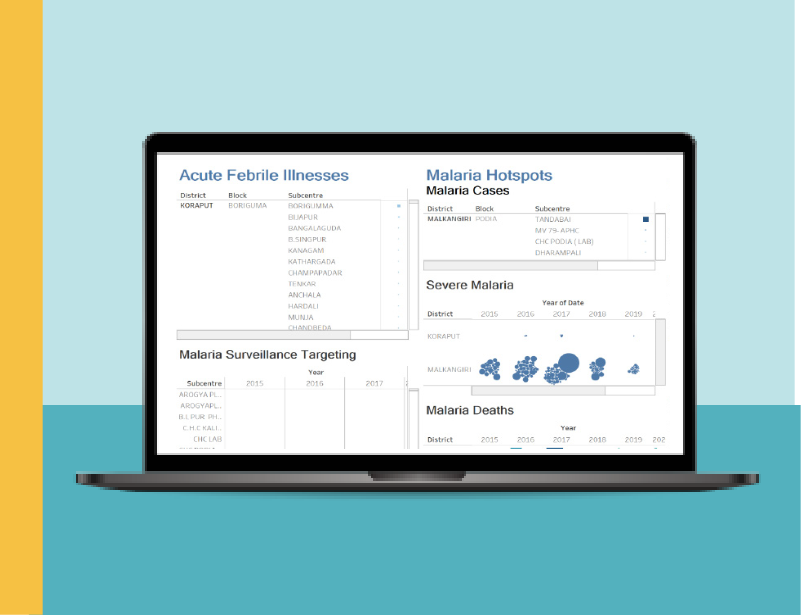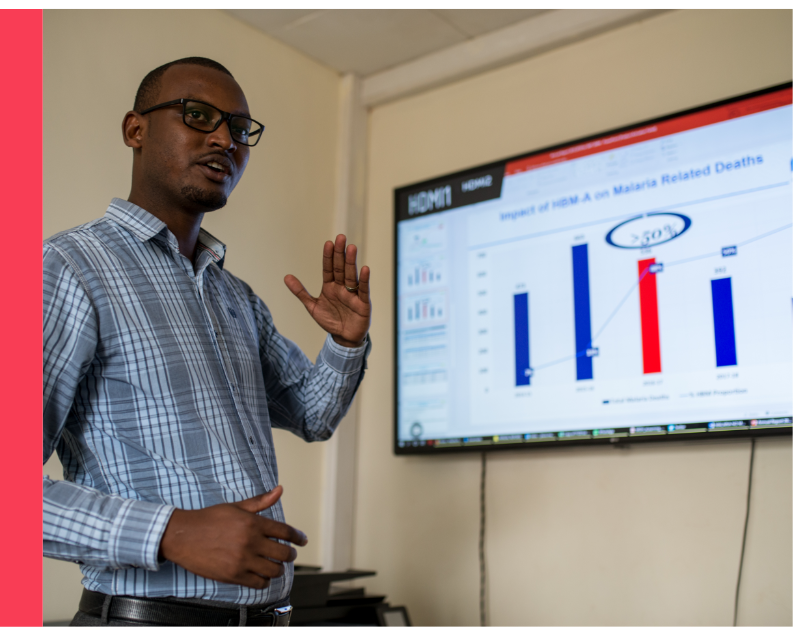

CLIMATE CHANGE IS COMPLICATING EFFORTS TO ELIMINATE MALARIA AROUND THE WORLD
According to the recent Intergovernmental Panel on Climate Change (IPCC) report, “Climate Change 2022”
In East and Southern Africa, 50-62 million people will be risk of malaria by the 2030s, and 196-198 million more at risk by the 2080s.
In South Asia the population at risk of malaria infection is estimated to increase by 134 million by 2030.
ABOUT THE INSTITUTE FOR HEALTH MODELING AND CLIMATE SOLUTIONS
A GLOBAL CENTER OF EXCELLENCE AT THE NEXUS OF MALARIA, CLIMATE, AND ARTIFICIAL INTELLIGENCE
The Institute for Health Modeling and Climate Solutions is a virtual center of excellence established to advance the discipline of climate-informed malaria prediction and planning, and to support its integration in malaria control programs worldwide. The Institute for Health Modeling and Climate Solutions brings together the foremost researchers and practitioners at the nexus of malaria, climate, and technology, creating a global network of experts in malaria early warning systems and other prediction and precision planning tools.
The Institute for Health Modeling and Climate Solutions' Three Pillars of Action
Innovation & Original Research
NETWORK & KNOWLEDGE DISSEMINATION
IMPLEMENTATION SUPPORT SERVICES
MALARIA PREDICTION AND PLANNING TOOLKIT (MPPT)
The Institute for Health Modeling and Climate Solutions' first innovation is a sophisticated malaria prediction and planning toolkit currently being demonstrated in India. This new technology application combines multiple sources of complex and dynamic data, applies advanced modeling techniques, machine learning and artificial intelligence, and produces easy-to-use visual interpretations for malaria program managers in various roles within the health system – all to improve decision-making in support of malaria elimination. The MPPT is now ready for replication in other geographies, through a process of adaptation and integration to the local context.

The Institute for Health Modeling and Climate Solutions' Malaria Prediction and Planning Toolkit and dashboard contain multiple elements, including:
Weather Info
High resolution data and forecasts for temperature, humidity, precipitation, and other relevant informationMalaria Maps
Granular mapping of malaria incidence, hotspots, and risk stratificationMonitoring Toolkit
User-friendly dashboards for monitoring supply chains, service, and program delivery
Fever care
mHealth app for real-time fever detection, tracking, and management
Malaria Intellibot
AI-based natural language processing bot for user-interactionAn Expert Network and Scientific Advisory Board

Advancing the discipline of climate-informed malaria prediction and planning through:
Discussion of new research and findings
Harmonization of methodology and terminology
Collaboration opportunities for joint research
News sharing and knowledge dissemination
Routine networking and information exchange
On-the-ground practical deployment
The Institute for Health Modeling and Climate Solutions will mobilize on-the-ground technical assistance through its staff, expert network and Scientific Advisory Board, and with support from partner organizations, to assist national malaria control programs to deploy solutions using weather data, artificial intelligence, and other innovations to anticipate and plan for the effects of climate change on malaria transmission. Plans and recommendations are tailored to that countries’ needs and current situation with no “one-size-fits-all” solution with a focus on the enabling environment and other supporting structures to ensure success.

The technical assistance phases of support are:
Needs assessment
Assessment of the current malaria control program, data availability, and local technical capacity
Recommendations
Identification of medium- and long-term opportunities to strengthen prediction and planning
Implementation Plan
Translating recommendations into practical work plans and resource requirements
Enabling environment
Data sharing agreements, intersectional solutions, and other support structures
